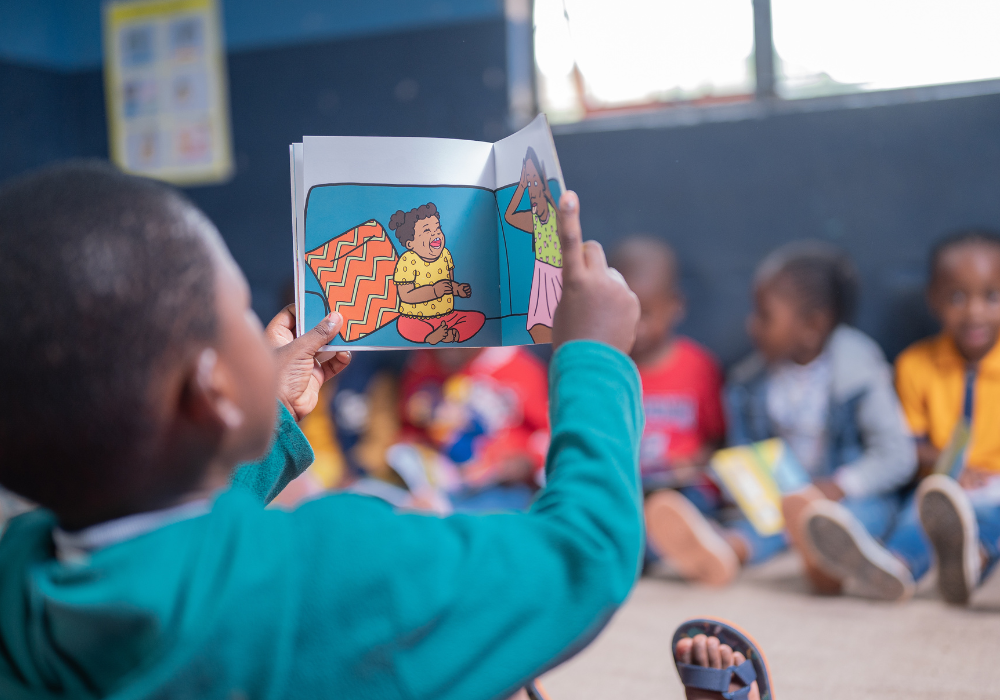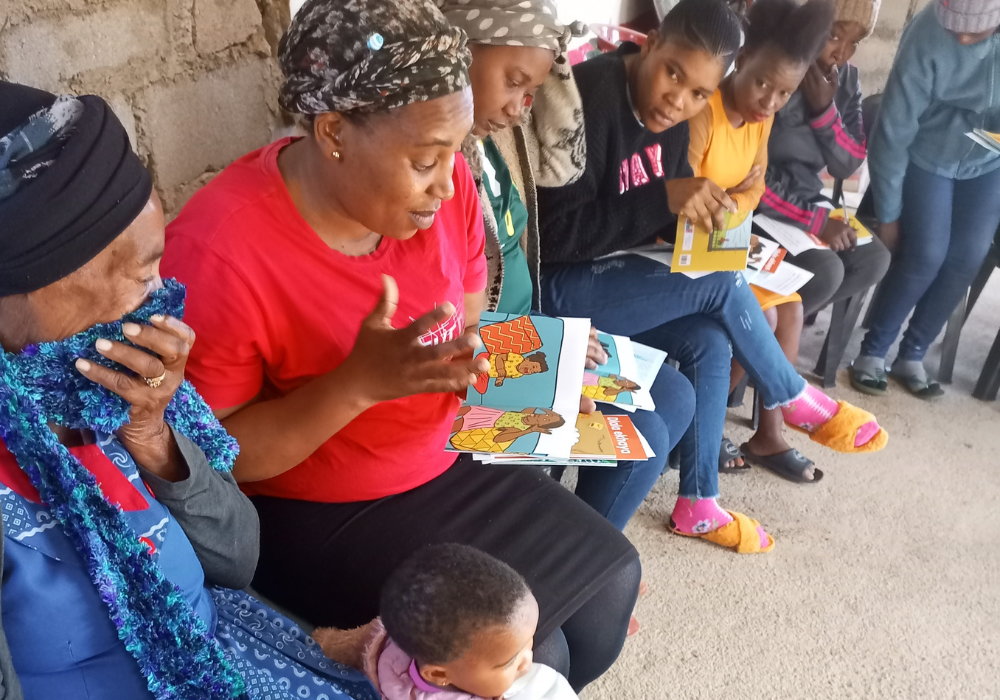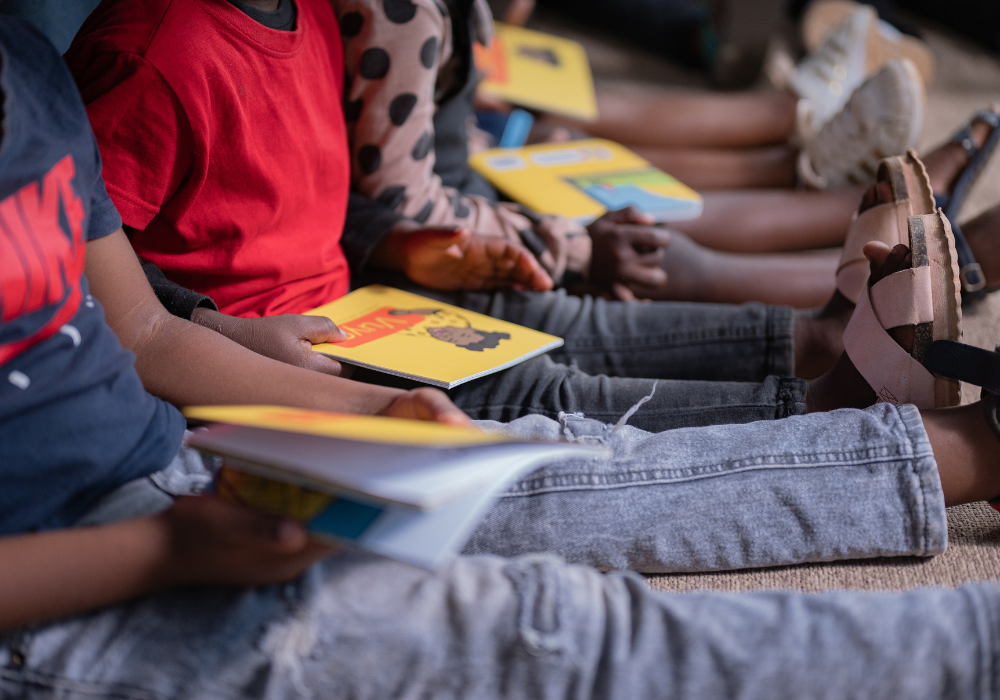Read and Play at Home: Empowering Parents to Foster their Children's Love for Reading
06 Sep 2024
Since its inception in 2022, the Read and Play at Home programme has reached 12 000 parents and caregivers, an impact only made possible through collaborative partnerships.
The DO MORE FOUNDATION partnered with Book Dash (supported by MySchool) to implement this programme in Worcester, Phongola and Nkomazi. Our implementing partner Lulamaphiko coordinated the programme design and Institute of Training and Education for Capacity-building (ITEC) was responsible for the compilation of parent training manuals.

At the heart of the Read and Play at Home programme is the belief that a child’s development is most successful when supported by a strong, collaborative relationship between parents and ECD centres. Read and Play at Home aims to foster a love of reading and enhance parenting skills by providing families with a diverse range of engaging and educational books tailored to meet the needs of the local communities. It is designed to empower parents and caregivers with the knowledge and tools needed to enhance their children's development through reading and play at home.
The importance of early reading at home
A University of Pretoria (UP) study found that 81% of South African Grade 4 learners struggle to read for comprehension. The study also pointed out that South Africa ranks the lowest out of 57 countries that participated in the 2021 Progress in International Reading Literacy Study (PIRLS), with a significant decline in reading scores compared to the previous assessment in 2016.
These findings emphasize the need for initiatives like the Read and Play at Home programme, which can play a crucial role in addressing these literacy gaps. The Read and Play at Home programme does this by providing parents with the tools and resources they need to make reading a regular part of their daily routine.

Read and Play at Home also recognizes that not all parents may feel confident in their ability to support their child's learning at home. To address this, the programme offers guidance and support to parents, empowering them with the knowledge and skills through workshops they need to become active participants in their child's early education.
Children who engage in early reading activities at home often exhibit better language skills, a more extensive vocabulary, and a deeper understanding of the world around them. These children are also more likely to develop a lifelong love for learning. This is how Read and Play at Home is structured to achieve this:
Training: Parents and caregivers are trained on the importance of reading and interactive play, using the resources provided by Book Dash and supported by Lulamaphiko and DO MORE.
Book distribution: Parents and caregivers who attend training get to take home three Book Dash books so they can start building their own bookshelf at home. Two books are in their own language, and one is wordless to allow parents to create stories with their children, ensuring that each household has access to high-quality reading materials.
Ongoing support: Focus groups are conducted annually to get feedback from parents and caregivers on the impact of the programme at household level. The programme includes ongoing support and follow-up to encourage continued engagement and assess the impact on child development.
Bridging the gap and building strong relationships between ECD centres and home learning
One of the unique aspects of the Read and Play at Home programme is its focus on creating a seamless connection between learning at ECD centres and at home. By fostering a partnership between parents and ECD centres, the programme ensures that children receive consistent support in their early learning journey.
This collaborative approach is particularly important in under-resourced communities where access to quality early learning programmes may be limited. Read and Play at Home equips parents with books and other educational materials that align with what their children are learning at their ECD centres. Moreover, the programme encourages regular communication between parents and ECD practitioners, creating a shared responsibility for the child's development.
By integrating play into the reading activities, the programme makes learning fun and engaging, which is crucial for maintaining a child's interest and enthusiasm. Play is not only a natural way for children to learn, but it also provides opportunities for parents and children to bond and for children to develop critical social skills.

The Read and Play at Home programme is a shining example of how collaborative efforts can make a significant impact on early childhood development. As we continue to navigate the challenges of ensuring quality early childhood education for all, initiatives like Read and Play at Home provide a blueprint for success, demonstrating the power of partnership in shaping the future of our children.
Contact our Partnerships Team to work with us to create better tomorrows for South Africa’s young children, their families, and communities: iris.naidoo@domore.org.za